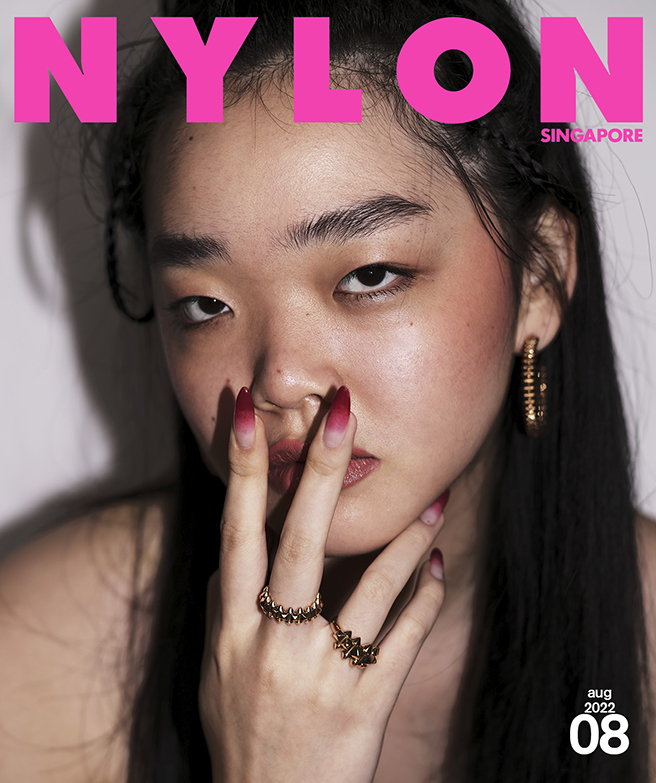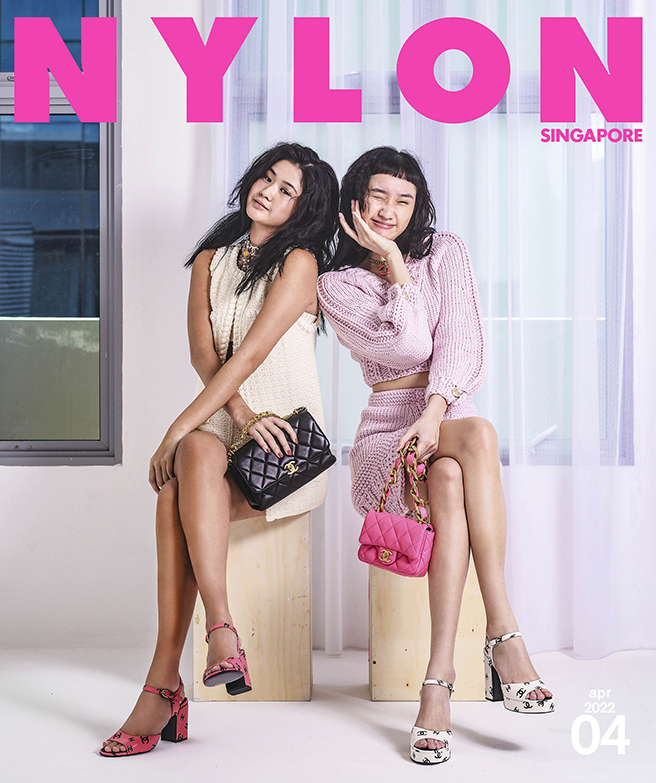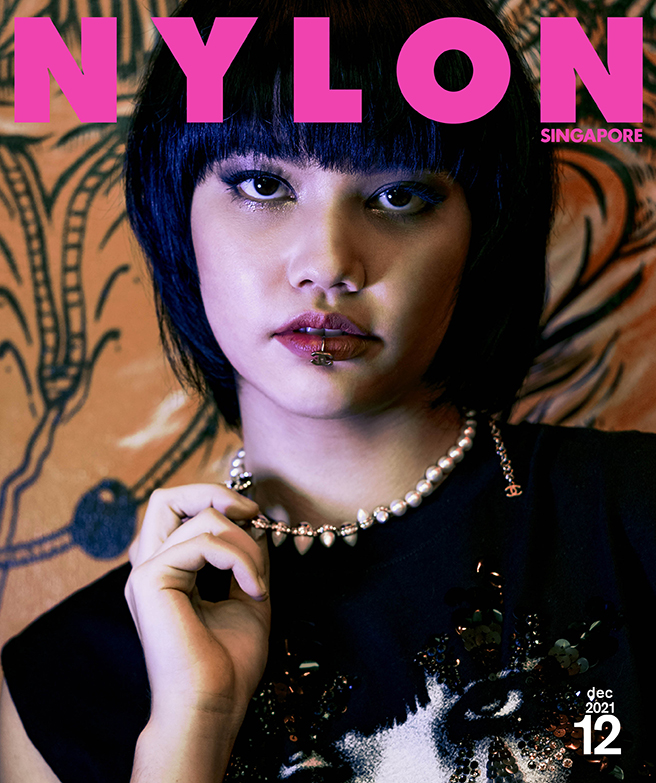Our latest cover girl Margaret Zhang sure is unlike any other personality that we have interviewed for a cover feature here at NYLON Singapore – after we bounced our interview questions off her via email, she offered to pen an essay to accompany her profile piece.
We were surprised, but also not that surprised. We’ve read Zhang’s fashion blog ShineByThree.com, and we’re aware that she’s a more than competent writer, capable of expressing her thoughts in a style that is poetic and introspective. That’s exactly what makes her such a refreshing standout from a sea of so-called “fashion bloggers” that fill their webpages with curated outfit pictures, but not much else; Zhang has never been the kind to publish her visually pleasing images without a good amount of carefully-thought out written content.
Here, Zhang has written about a topic she feels passionately about, which is the changing role of youth in modern society – of which she is an ideal example. Having just turned 23, she is already playing marketing consultant to some of the world’s biggest brands, getting marketing executives who have been in the industry way longer than she is to sit up and listen to her ideas on how to effectively reach out to her generation of consumers. Five years ago, this was probably unheard of, but here Zhang is, trailblazing her way through the corporate spaces, a shining beacon of light to the millennials whom society has decided to label less driven as compared to earlier generations – but Zhang is obviously one of the best counterexamples to that stereotype that we know of.
As to why she wanted to present herself and her ideas in her own voice with this essay, Zhang explains: “As somebody with an engaged online influence, I feel a responsibility to take every opportunity to share with my readers the potential they are able to harness in a shifting work landscape, which is infinitely more important than the standard interview questions of how I would describe my personal style, how many pairs of shoes I own, what my diet is, and my skincare regime – none of which, in the grand scheme of things, help anybody at all.”
So here is MZ, in her own words.
“KIDS THESE DAYS”
By Margaret Zhang
Youth have somehow always ended up on the right side of history – if only in retrospect. Time and time again, fresh eyes and fearless minds discredit the cynical institution’s blind antagonism of change. Idealistic? Of course. Impractical? Perhaps. But never impracticable. The expansion of that Judy Blume young adult chapter between childhood and adulthood prompted the emergence of a distinctive youth culture via radical student movements of the 50s and 60s – too opinionated to succumb to authority, yet footloose to adult responsibility and certainly defiant to the mandates of parents, universities, governments, The System. Paradigm shift after shift, youth at their best have continued to perceive and drive conversation around fundamental injustices to visible minority groups. At the very least, they have defined monumental leaps in style, art, film and music.
No mean feat.
Yet, each generation eventually grows into a prescribed mentality of what capitalism calls “success” and “security”, and erases rebellion, blind passion, and furious ambition from their pragmatic everyday. In the absence of true innovation, they seek to impose their newfound norm on their children. Humans are creatures of habit, after all.
And so, we arrive in 2016. Social norms and attitudes are slowly but surely approaching universality. Certainly, justice and equality have decades of progress yet to transpire, however varying proportions of society do acknowledge these as problems. The adult world finds itself in a strange time where information is the more dominant, more valuable and yet the more immediately obtainable currency than decades of nine-to-five billable hours. Youth, the presumptively insatiable consumer of goods, media, and money, is starved of relevant product stimulus and substance within their vernacular. Publication after publication, product after product, impose out-dated values on what they think the 18-to-25 year old female or 21-to-30 year old male “needs” and “wants”, without once consulting the very minds they attempt in vain to capture. Such efforts inevitably fail, and live out their days ignoring sunk costs and manufacturing “engagement” data by syndicating content of listicles and Kardashians that will be sure to generate clicks this afternoon – we’ll worry about next year later. As such, the greatest product and media success stories are born of their own: the 30 Under 30, the student body, and for a time, the Silicon Valley. So many twenty-somethings’ value is not in the copy room, at the beck and call of their superiors, blinded by self-serving corporate structures, but rather in the boardroom, out of what society defines as their comfort zone, challenging archaic frameworks. The tables of authority have turned.
And yet, as always, it’s a double-edged sword.
Infinite access does not imply knowledge. Education, in pop culture, has somehow diminished in value in the lifecycle of a career. For many, this means opportunity in the face of social inequality – and of course, the underdog and unlikely hero should continue to be championed as role models that succeeded against all odds. Anything is possible. However, for the most recognisable category of young people, it reinforces the age-old indictment of youth as lacking direction, impetus, and motivation. The pure possibility of immediate possession or information – clicking to buy something online that will be delivered to their door within hours, uncovering any answer to any question at their literal fingertips, having a free and unfettered soapbox for any opinion (well-informed or not) – does not, and cannot, warrant entitlement. The millennial, as much as they resent the label, cannot assume instantaneous accessibility to all aspects of life. “Want it now” cannot apply to gaining the respect of their community and peers, or their career trajectory. The most revolutionary ideas and attitudes will remain unrealised and nebulous without hard work. In that regard, there really is no overnight secret to success – indeed, there is no overnight success at all.
But perhaps, this is not a new phenomenon. Perhaps mothers of every generation have despaired amongst themselves at the uncouth youth they have reared. Did we fail? Why won’t they listen? What do they know? Perhaps it is to be that for every jolting and progressive change to the ecosystem, there must be some encumbering equaliser to keep us in the eternal cycle of two steps forward and one step back. Perhaps it’s just a rite of passage.
You decide.
Read our full profile on Margaret Zhang in our #43 Haute Stuff issue, out on newsstands now.










